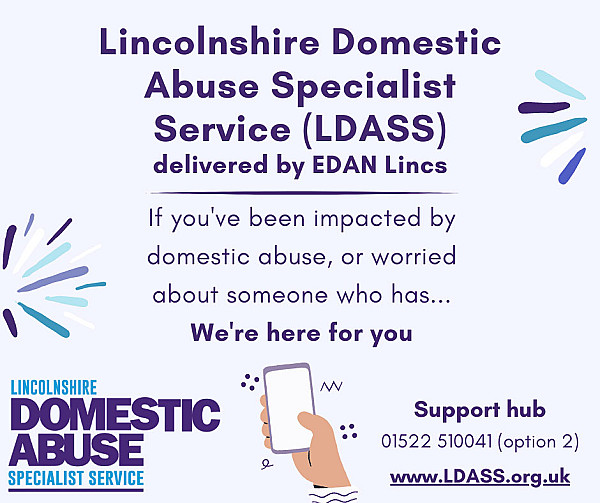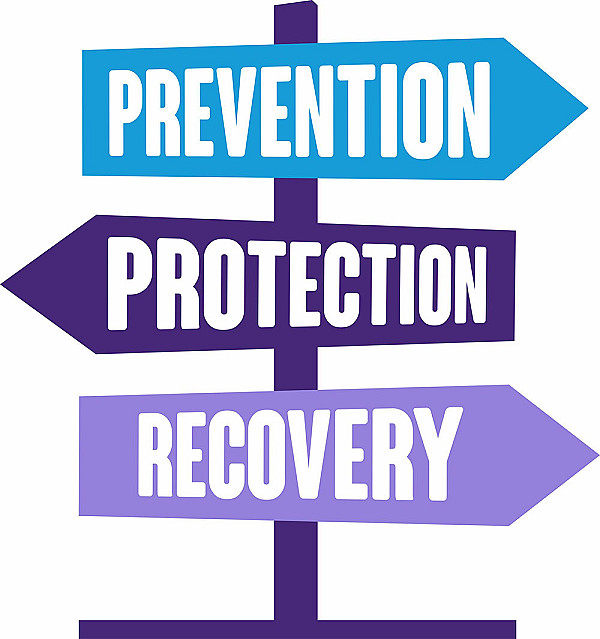Lincolnshire Domestic Abuse Specialist Service

Lincolnshire Domestic Abuse Specialist Service (LDASS) is commissioned by Lincolnshire County Council, with support from Lincolnshire’s Police and Crime Commissioner and NHS Lincolnshire Integrated Care Board.
The service began on the 1st April 2023 and is delivered by our organisation - EDAN Lincs.
Lincolnshire Domestic Abuse Specialist Service (LDASS) is aligned to three core principle aims:
- Prevention; aiming to intervene before harm occurs or preventing further harm.
- Protection; providing support to victims if harm has occurred to reduce the impact and increase their safety.
- Recovery; to be future-focused, increase resilience, confidence, and skills to rebuild victims’ lives.
The service objectives are:
- To increase community awareness and understanding of domestic abuse
- To target effective engagement to ensure equitable service access
- To ensure victims are identified and seek early interventions
- To provide timely support to victims
- To increase the safety of victims
- To reduce the risk of harm and its impacts
- To support victims to improve their well-being and outcomes
- To reduce re-victimisation
- To foster the development of by and for community support
Service Overview
 LDASS ensures that all Lincolnshire residents at risk of, experiencing or being affected by domestic abuse can access information, advice, and where eligible, specialist intervention support. The service is inclusive for any person affected by domestic abuse including children and young people.
LDASS ensures that all Lincolnshire residents at risk of, experiencing or being affected by domestic abuse can access information, advice, and where eligible, specialist intervention support. The service is inclusive for any person affected by domestic abuse including children and young people.
The Domestic Abuse Support Service encompasses the following elements of service:
- A digitally based Universal Offer to all victims of domestic abuse in Lincolnshire.
- A Support Hub, including helpline, effective triage, and strength-based assessment.
- Adult Support Interventions including complex needs pathway
- Children and Young People’s Support Interventions
- IDVA Support for victims at highest risk of serious harm
- Recovery Support
- An Outreach and Engagement Team
Click on the above links to find out more about these services and how to refer or click here to be directed to the LDASS website.
